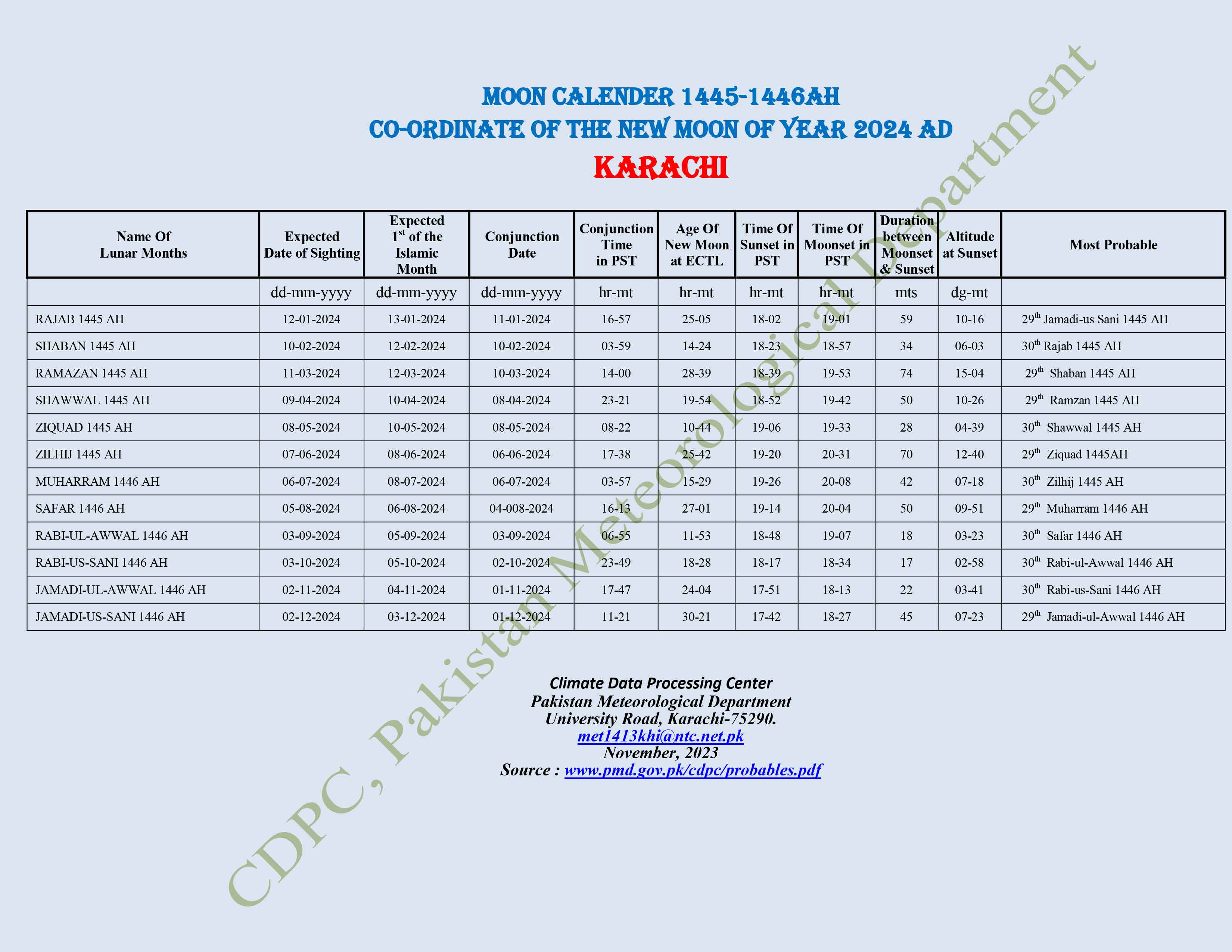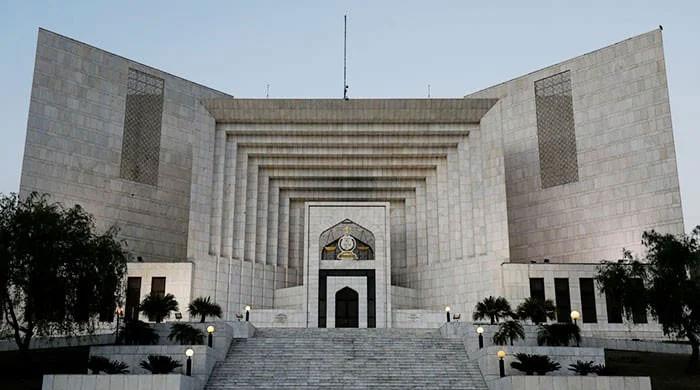Shawwal chand in Pakistan: Eid-ul-Fitr to fall on April 10?
PMD says sky in most parts of Pakistan to be clear on April 9; birth of Shawwal moon would take place at 11:21pm on April 8
April 01, 2024

- Shawwal crescent expected to be sighted on April 9.
- Met Office says moon could be sighted for 50 minutes.
- Pakistanis to observe 29 days of fasting, if forecast is true.
KARACHI: The Pakistan Meteorological Department (PMD) on Monday said that there were high chances of the Shawwal crescent being sighted on April 9 making the first day of Eid-ul-Fitr on April 10.
The Met Office said birth of the new moon would take place at 11:21pm on April 8 and its age next day in the evening would be between 19 and 20 hours. It said after sunset the moon could be sighted for more than 50 minutes.
The PMD said the sky in most parts of the country would be clear on April 9. However, it added that the sky might be cloudy in northern areas.

The crescent for the holy month of Ramadan was sighted on March 11 in Pakistan and the first day of the holy month was observed the next day. So, Pakistanis would observe 29 days of fasting, if the PMD’s forecast turns out to be true.
Eid-ul-Fitr is observed by Muslims the world over after Ramadan culminates and Shawwal begins. The Islamic month of Ramadan teaches to practice patience and self-control while also promotes charity and welfare, while Eid serves as a festive and joyous occasion immediately after that.
Islamic months last 29 or 30 days and the beginning or end of a month depends on the appearance of the crescent, so Ramadan is not set on any specific day annually.
The month of Ramadan is the ninth of the 12 months of the Islamic calendar. Despite having as many months as the Gregorian calendar, the Islamic calendar is nearly 10 days shorter due to it being based on the lunar orbit.
This is why Ramadan falls at a different time every year according to the Gregorian calendar.











